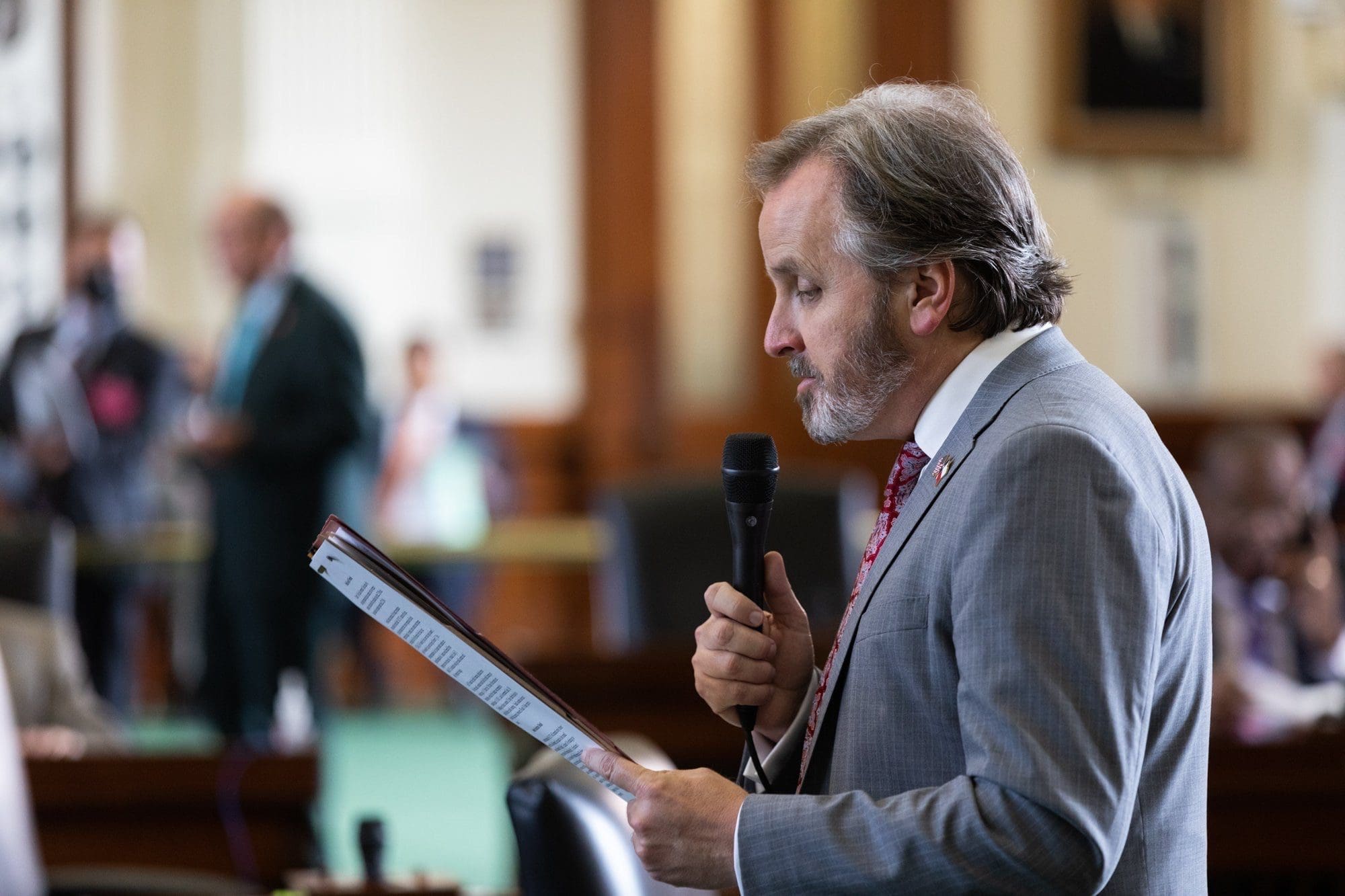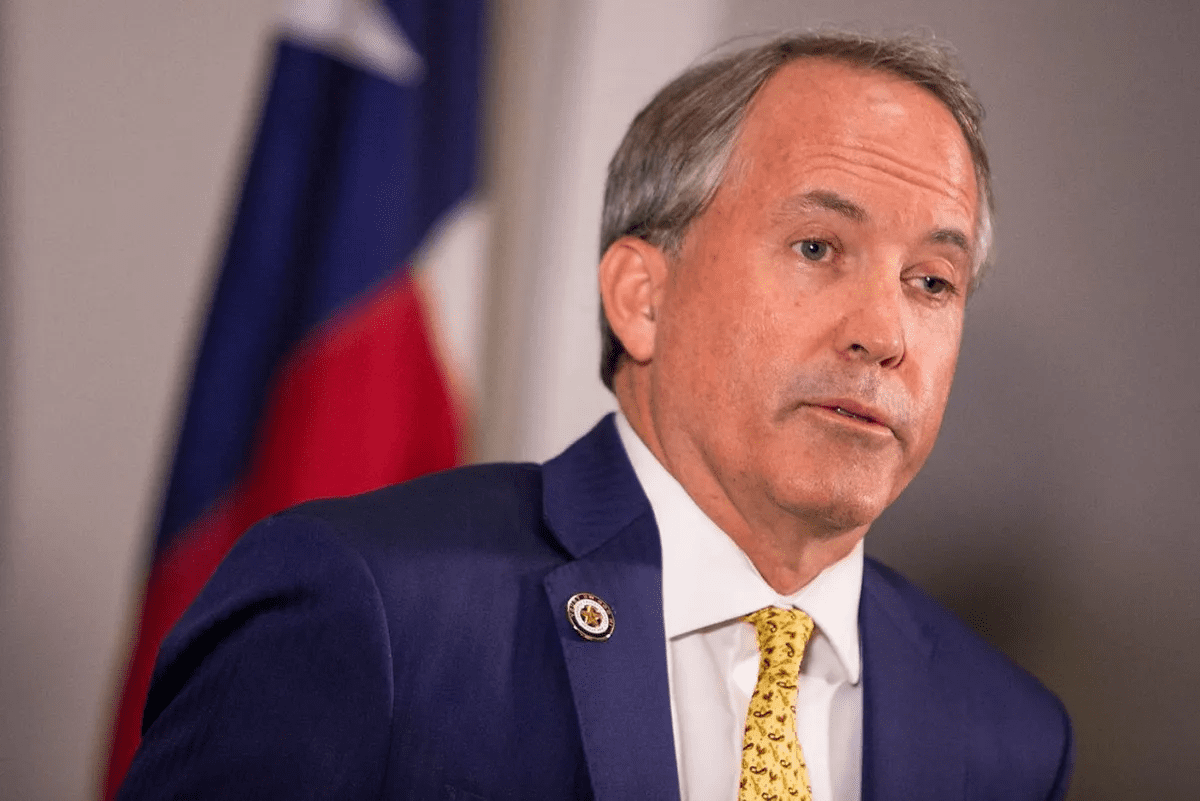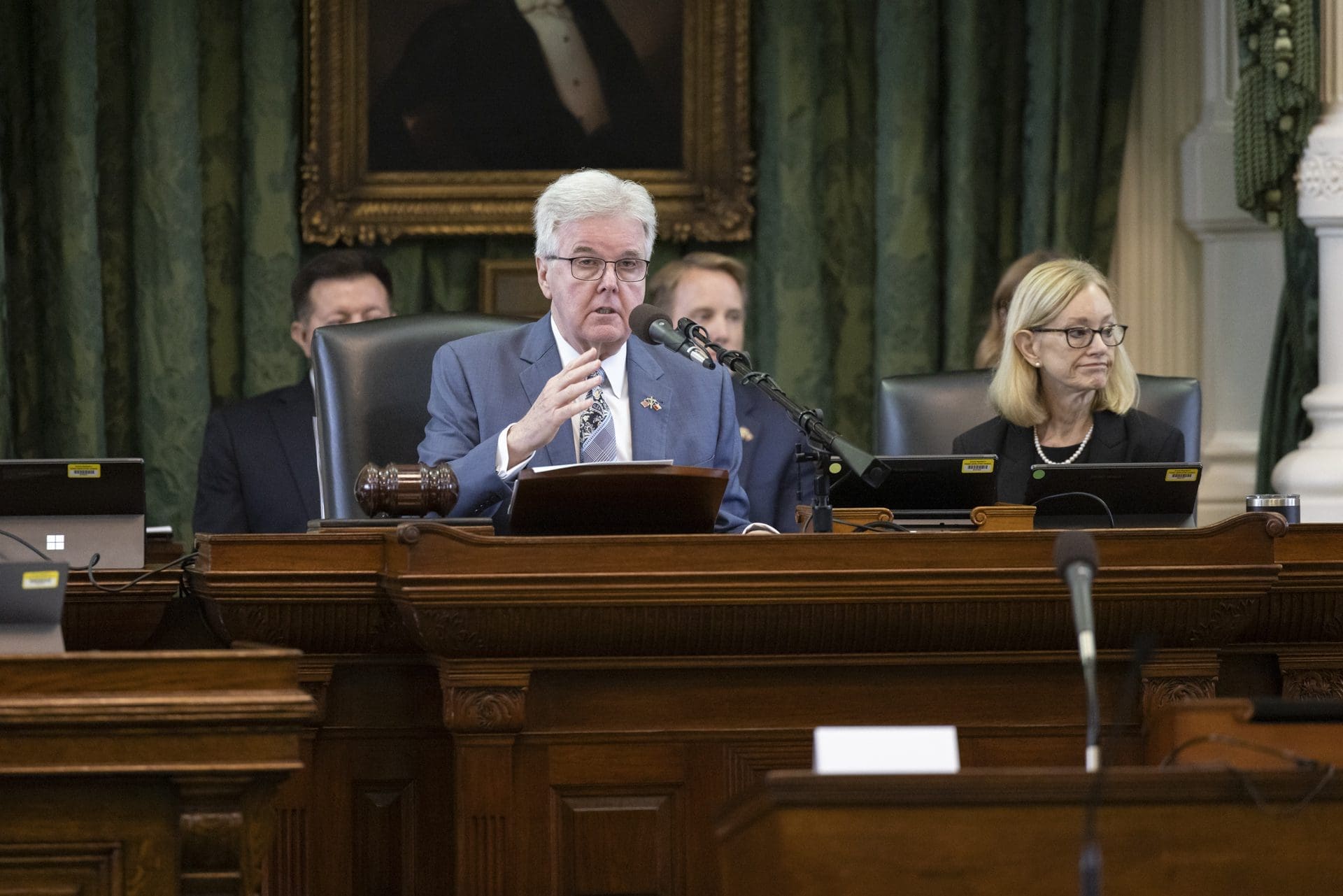Republican-priority election integrity legislation is finally moving through the Texas Senate, more than eight weeks after the governor declared the issue an emergency.
Following eight hours of debate and amendments that began Wednesday evening and ended early Thursday, senators passed Republicans’ high-priority comprehensive election reform Senate Bill 7 on a party-line vote, 18-13.
Election integrity is a top legislative priority of the Texas GOP and the only one also declared an emergency item by Republican Gov. Greg Abbott, who said last month he is ready to sign “robust” election reform bills sent to his desk by the Republican-controlled Legislature.
The omnibus election bill, authored by State Sen. Bryan Hughes (R–Mineola) and 12 other GOP senators, is loaded with reforms sought by election integrity advocates and intended to make voting more secure, accurate, and transparent.
“People want to know that their vote will be counted accurately, that the system is fair and transparent,” Hughes told senators Wednesday evening.
The bill includes dozens of provisions relating to voter registration, voting by mail, voter assistance, poll watchers, voting systems, and more. It also adds criminal and civil penalties for fraud and official misconduct.
Hughes said the bill contains some carryovers from last session’s Senate Bill 9, such as paper-ballot audit trails, as well as new ideas about ballot security and tracking. It also reins in county election administrators who deviated from standard election practices during the 2020 COVID outbreak.
“We had local election officials going beyond the letter and the spirit of the law,” he said.
The Senate-passed version of Hughes’ bill incorporated a number of changes recommended by election integrity and disability rights advocates at last week’s committee hearing, as well as amendments from both Democrat and Republican senators.
Major amendments removed a controversial requirement that voters applying for mail ballots due to disability provide documentation of their condition, and added provisions to make paid mail-ballot harvesting illegal and provide a civil remedy.
In addition to the disability certification pulled from the bill, Democrats strongly opposed allowing poll watchers to record election officials’ activities.
“There’s going to be litigation on this issue,” said State Sen. Royce West (D–Dallas).
Hughes said there have already been disputes and litigation involving poll watchers, and he thinks his bill will provide clarity.
“Poll watchers are there to observe the process and what the election workers are doing,” Hughes added.
Democrats also objected to provisions that clearly disallow drive-thru voting, 24-hour voting, and mass distribution of unsolicited mail-ballot applications—makeshift procedures implemented temporarily during the Chinese coronavirus outbreak that Democrats want to make permanent.
“Local jurisdictions can’t just make up the rules on their own,” Hughes said.
Harris County’s top election official at the time, Texas Democrat Party Vice Chair Chris Hollins, used private money from Facebook founder Mark Zuckerberg to pay for those deviations from established election administration practices. Harris received $9.6 million in “ZuckBucks”—the second-largest COVID-19 Response Grant in Texas, behind Dallas County’s $15 million.
Several Democrats, including West, also claimed the reforms aren’t needed as voter fraud isn’t a problem.
Hughes cited an ongoing voter fraud prosecution in his district, in which defendants are accused of falsely claiming disability on dozens of harvested mail ballots in a 2018 Democrat primary decided by just five votes. He also referred to testimony given last session from then-District Attorney Omar Escobar, a Democrat who represented Starr and two other South Texas counties, that mail-ballot harvesters were caught falsely checking “disability” on ballot applications for voters who aren’t disabled.
“I wish we could agree that any voter fraud is too much,” Hughes said.
As amended, Senate Bill 7 would:
- expand the data voter registrars can use to verify voters’ citizenship
- assess civil penalties for officials who don’t follow election code
- prohibit officials from sending unsolicited mail-ballot applications
- add an affirmation of disability to mail-ballot applications
- implement an online tracking system for voters who request mail ballots
- prohibit drop boxes for mail ballots
- set uniform early voting hours statewide
- prohibit “drive-thru” voting
- define what it means for poll watchers to observe (“near enough to see and hear”)
- allow poll watchers to record election officials’ activities
- allow surveillance cameras in ballot-counting locations and mandate the video be publicly live-streamed in counties with 100,000 or more residents
- require all Texas voting systems to have an auditable paper trail by 2026
- require approvals from multiple state officials for counties to accept more than $1,000 in private cash for election administration
The bill’s $34 million fiscal note is almost entirely for helping counties buy or upgrade voting systems to meet the new paper-trail standards.
“This is about Texas elections,” added Hughes. “We’ve been working on this long before 2020.”
SB 7 is the first election integrity bill passed by either chamber of the Texas Legislature—80 days into the 140-day session and 59 days after Abbott put election integrity on a legislative fast-track.
The bill now goes to the House for consideration.
Texans can contact state lawmakers to weigh in on SB 7 and other issues.
Details about bills, along with resources to help citizens participate in the legislative process, are available at Texas Legislature Online.





